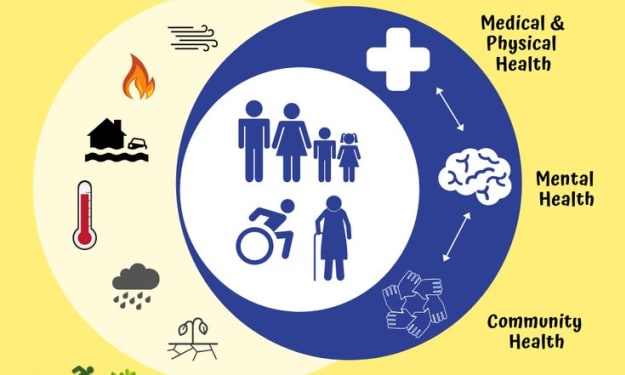Sustainable Living
Practical tips and innovative solutions for living a more sustainable lifestyle.

Sustainable Living: Practical Tips and Innovative Solutions for Living a More Sustainable Lifestyle.
As our world grapples with environmental challenges, it has become increasingly crucial for individuals to embrace sustainable living practices. By making conscious choices in our daily lives, we can reduce our ecological footprint and contribute to a healthier planet. This article aims to provide practical tips and innovative solutions for living a more sustainable lifestyle. From energy conservation to waste reduction, there are numerous ways we can make a positive impact.
1. Energy Conservation:
One of the primary areas where we can make a significant difference is energy consumption. By reducing our energy usage, we can decrease greenhouse gas emissions and conserve natural resources. Here are some practical tips for energy conservation:
a) Opt for energy-efficient appliances: When purchasing new appliances, look for those with an Energy Star rating. These appliances are designed to use less energy, ultimately reducing your electricity bills.
b) Use LED lighting: LED bulbs are more energy-efficient and last longer than traditional incandescent bulbs. By switching to LED lighting throughout your home, you can save energy and money.
c) Unplug unused electronics: Even when turned off, electronics continue to consume energy if they are plugged in. Unplug chargers, televisions, and other devices when not in use to reduce standby power consumption.
2. Sustainable Transportation:
Transportation is another major contributor to carbon emissions. By adopting sustainable transportation practices, we can help combat climate change and reduce air pollution. Here are some ideas for sustainable transportation:
a) Use public transportation, carpool, or bike: Whenever possible, choose public transportation, carpool with others, or bike to your destination. These alternatives reduce the number of vehicles on the road, decreasing traffic congestion and emissions.
b) Choose fuel-efficient vehicles: If you own a car, consider investing in a fuel-efficient or hybrid vehicle. These vehicles have lower emissions and are more environmentally friendly.
c) Walk for shorter distances: Whenever feasible, opt for walking instead of using a vehicle for short trips. Not only does walking promote physical health, but it also reduces carbon emissions.
3. Waste Reduction and Recycling:
The amount of waste we generate has a direct impact on the environment. Adopting waste reduction and recycling practices is essential to conserve resources and reduce pollution. Here are some strategies for waste reduction:
a) Practice the 3 R's: Reduce, reuse, and recycle. Before buying new items, consider if you truly need them. Reuse or repurpose items whenever possible. Finally, recycle materials such as paper, plastic, glass, and metal to minimize landfill waste.
b) Compost organic waste: Instead of throwing away food scraps and yard waste, start a compost pile or use a composting bin. Composting turns organic waste into nutrient-rich soil that can be used in gardens and plant beds.
c) Avoid single-use items: Single-use items like plastic bags, water bottles, and disposable cutlery contribute to waste accumulation. Replace them with reusable alternatives such as cloth bags, stainless steel water bottles, and bamboo cutlery.
4. Water Conservation:
Water scarcity is a growing concern in many parts of the world. By conserving water, we can ensure its availability for future generations and protect aquatic ecosystems. Here are some tips for water conservation:
a) Fix leaks and drips: Regularly check for leaks in faucets, toilets, and pipes, and repair them promptly. A small leak can waste a significant amount of water over time.
b) Install water-efficient fixtures: Install low-flow showerheads and faucets to reduce water consumption without sacrificing comfort. These fixtures can significantly reduce your water usage.
c) Collect rainwater: Consider installing rain barrels or cisterns to collect rainwater for watering plants and gardens. This helps reduce the demand for treated tap
water.
5. Sustainable Food Choices:
The food we consume has a significant impact on the environment. By making sustainable food choices, we can support local farmers, reduce food waste, and minimize the carbon footprint of our meals. Here are some ways to make sustainable food choices:
a) Eat local and seasonal produce: Locally sourced and seasonal produce reduces transportation emissions and supports local farmers. Visit farmers' markets or join a community-supported agriculture (CSA) program to access fresh, sustainable food.
b) Reduce meat consumption: The meat industry is a major contributor to greenhouse gas emissions. Consider reducing your meat consumption by embracing plant-based meals or participating in "Meatless Mondays."
c) Minimize food waste: Plan meals, store food properly, and use leftovers creatively to minimize food waste. Composting food scraps instead of throwing them away is another effective strategy.
Conclusion:
Living a sustainable lifestyle is no longer an option but a necessity. By incorporating the practical tips and innovative solutions mentioned above, we can actively contribute to a more sustainable future. Energy conservation, sustainable transportation, waste reduction and recycling, water conservation, and sustainable food choices are key areas where we can make a positive impact. Together, let us embrace sustainable living and become stewards of our planet for generations to come.





Comments
There are no comments for this story
Be the first to respond and start the conversation.